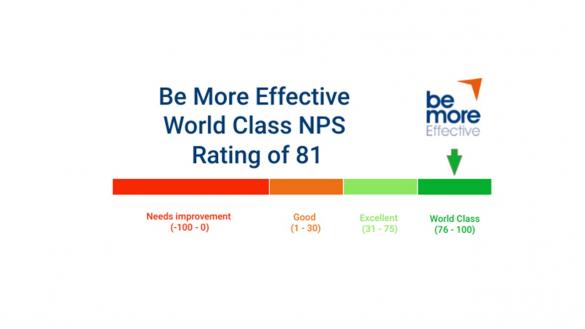7 Ways To Create A Great Place To Work

The workplace environment can significantly impact your employees. It can affect everything from productivity to workplace morale, ultimately determining a teams performance. A great workplace inspires teams to collaborate, build relationships and use their skills and abilities to reach goals and targets. On the other hand, a negative workplace can lower morale, decrease productivity and increase turnover. In 2023, turnover is on the rise with many businesses struggling to create a pos...
Read moreChanges To The Minimum Wage In April 2023
.jpg)
The minimum wage in the UK will increase on the 1st of April 2023 to counter the impact of inflation. Chancellor Jeremy Hunt said that the National Living Wage will increase across age ranges from 16-year-olds to 23-year-olds and above. Here’s how it will impact different age groups. 23-year-olds and above (known as the National Living Wage) will receive a pay increase of 9.7%. This will increase their wage from £9.50 to £10.42 an hour.
Read moreWhat Is A Good Net Promoter Score?

A Net Promoter Score (NPS) is one of the best metrics used by businesses to measure customer satisfaction and loyalty. It is calculated by asking customers how likely they are to recommend a company, product, or service to a friend or colleague, on a scale of 0 to 10. Customers who give a score of 9 or 10 are considered "promoters," those who give a score of 7 or 8 are "passives," and those who give a score of 0 to 6 are "detractors."
Read moreThe Value of Quarterly Business Review

What are the problems for a business that does not conduct a quarterly business review and what are the benefits for those businesses that do? Here is an important summary.
Read moreThe Employment Market- What It Looks Like At The Moment

The employment market has been through a turbulent few years following the COVID-19 pandemic. Working conditions have changed, employee demands are evolving, and millions of people are leaving their jobs in what’s being called the great resignation. Given the volatility of the market, it’s crucial that employers and jobseekers stay on top of market trends to avoid any unexpected surprises. With this in mind, here are three trends in the employment market and the jobs that will be mos...
Read moreThe Best Ways To Attract And Retain Staff

Attracting and retaining staff is an ever-growing problem for businesses in the UK. Around 81% of SMEs struggle to recruit new staff, while 41% of larger companies are finding it harder to attract the right candidates each year. To change these downward trends, businesses will need to adapt both how they attract new team members and how they retain their current staff, offering unique incentives and packages to keep their teams happy. This article will look at ways to attract new staff and h...
Read morePeople Skills: Building Great Relationships

No matter how great of an individual someone may be, they’ll need others around them to unlock their full potential. This requires people skills and in particular, the skill to build relationships. Our ability to build relationships will ultimately determine our success both inside and outside of work. However, much like any skill, developing great relationships takes time. With that in mind, here are several ways to build great relationships both inside and outside the workplace.
Read moreWould you like £90 towards regulated training?

Five years ago, Be More Effective launched a sister company called Key Performance Training. Key Performance Training provides a variety of regulated industrial sector training and certification for both employers and employees across the UK.
Read morePractical Thinking Tools For A Hectic World

As technology becomes advances, the ways we interact with one another are also changing. Workplaces are being replaced by home desks. Meetings are being replaced with zoom calls. And local business connections have turned to worldwide networks. While there are many benefits to these advancements, they don’t come without consequences
Read moreThe Benefits Of Equality And Diversity In The Recruitment Process

Recruitment is a difficult process for many businesses. The right candidate can make or break a team, which puts recruitment teams under significant pressure to find the right person for the job. However, most businesses look at recruitment the wrong way, especially when it comes to equality and diversity. Many look at diverse recruitment from a legal position, meeting diversity targets instead of the many benefits that come with diverse teams.
Read more

